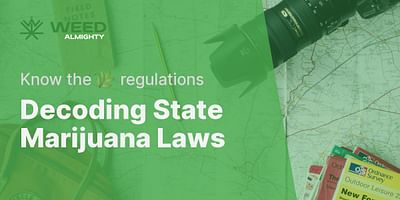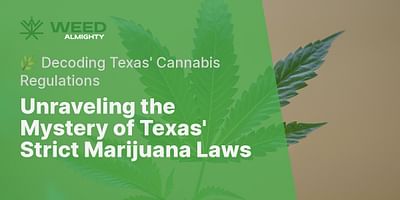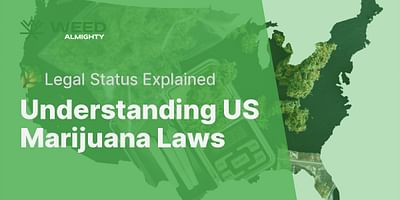Ethan Lee is a cannabis activist and writer who has been advocating for cannabis legalization for over a decade. He is passionate about educating others on the benefits of cannabis and fighting against the injustices of the war on drugs.
Hey there! Great question. The conflict between state and federal marijuana laws can be a bit confusing, so let me break it down for you.
In the United States, we have a unique situation where marijuana is still classified as a Schedule I controlled substance at the federal level. This means that according to federal law, marijuana is illegal and considered to have no accepted medical use. However, many states have taken matters into their own hands and have legalized marijuana for medical and/or recreational use.
This conflict between state and federal laws creates a lot of confusion and discrepancies when it comes to cannabis regulations. On one hand, you might be living in a state where marijuana is legal, allowing you to possess, use, and even grow cannabis plants. But on the other hand, you could still be at risk of federal prosecution because it remains illegal under federal law.
So, what does this mean for you as a cannabis consumer? Well, it's important to understand that while you may be protected by state law, you could still potentially face legal consequences at the federal level. This is especially true if you're involved in activities that violate federal law, such as transporting marijuana across state lines or operating a cannabis business.
It's also worth noting that the federal government has historically taken a hands-off approach when it comes to enforcing marijuana laws in states where it's legal. This is due to a policy known as the Cole Memo, which provided guidance to federal prosecutors on how to prioritize enforcement efforts. However, this policy was rescinded in 2018, leaving the door open for potential changes in federal enforcement.
To add to the complexity, some states have their own unique regulations that may differ from neighboring states. For example, one state may allow the sale of cannabis products, while another state only permits the use of medical marijuana. These discrepancies can make it challenging for individuals and businesses to navigate the ever-changing landscape of cannabis laws.
Comparison of Cannabis Laws by State
| State | Recreational Use | Medical Use | Sale of Cannabis Products | Unique Regulations |
|---|---|---|---|---|
| California | Legal | Legal | Legal | Adults 21 and over can possess up to one ounce of cannabis, and can grow up to six plants per residence |
| Texas | Illegal | Limited | Illegal | Only low-THC cannabis is allowed for certain medical conditions |
| Colorado | Legal | Legal | Legal | Public use is illegal, and it is illegal to take cannabis across state lines |
| Florida | Illegal | Legal | Illegal | Only non-smokable forms are legal for medical use |
| New York | Legal | Legal | Legal | Smoking is not allowed where tobacco smoking is prohibited |
| Arizona | Legal | Legal | Legal | It is illegal to consume cannabis in public places or drive under the influence |
| Illinois | Legal | Legal | Legal | Home cultivation is only legal for medical patients |
| Ohio | Illegal | Legal | Illegal | Only non-smokable forms are legal for medical use |
In summary, the conflict between state and federal marijuana laws creates a legal gray area for cannabis consumers and businesses. While you may be protected by state law, it's important to be aware of the potential risks and understand that federal law still considers marijuana illegal. Staying informed and up to date on both state and federal regulations is key to navigating the world of cannabis responsibly.
I hope this clears up some of the confusion surrounding the conflict between state and federal marijuana laws. If you have any more questions, feel free to ask!














